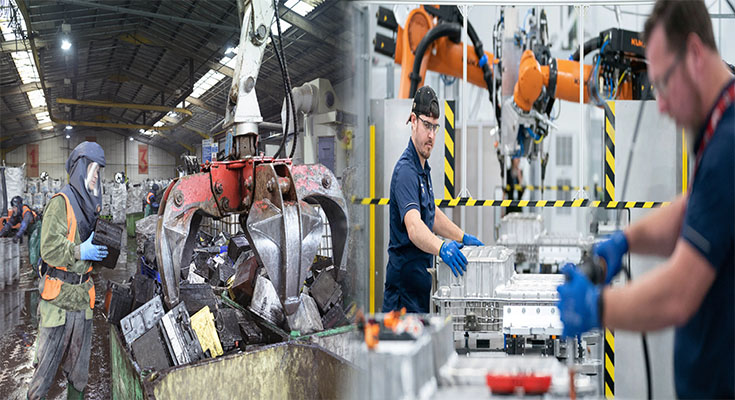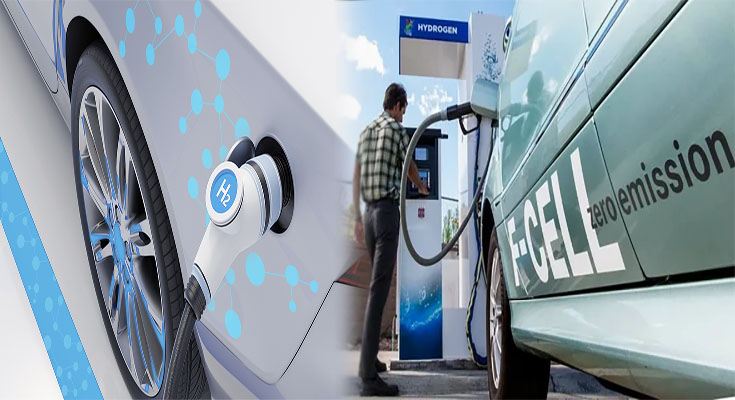The global shift toward sustainable transportation has propelled the electric vehicle (EV) industry into the spotlight. As the demand for EVs continues to grow, so does the importance of sustainable practices in their manufacturing. In particular, the future prospects of recyclable materials in electric vehicle battery manufacturing are gaining significant attention. In this article, we will delve into the potential impact and benefits of integrating recyclable materials into the production of electric vehicle batteries.
The Growing Importance of Sustainable Practices in Electric Vehicle Manufacturing
The production of electric vehicle batteries has been a focal point for environmental sustainability due to the use of critical materials such as lithium, cobalt, and nickel. As the EV market expands, the need for sustainable practices in battery manufacturing becomes increasingly crucial. Incorporating recyclable materials presents an opportunity to minimize environmental impact, reduce reliance on virgin materials, and create a more circular economy within the EV industry.
Advantages of Utilizing Recyclable Materials in Electric Vehicle Battery Production
Environmental Conservation
The adoption of recyclable materials in battery manufacturing contributes to environmental conservation by reducing the extraction and processing of raw materials. By reusing and recycling materials such as lithium, cobalt, and nickel, the industry can mitigate the environmental impact associated with mining and ensure the preservation of natural resources.
Energy Efficiency and Cost Reduction
Integrating recyclable materials into battery production can lead to improved energy efficiency and reduced manufacturing costs. The recycling process for materials like lithium and cobalt requires less energy compared to sourcing these materials from scratch. This not only reduces the carbon footprint of battery production but also offers potential cost savings for manufacturers.
Reduction of Waste and Landfill Impact
The utilization of recyclable materials aligns with the goal of minimizing waste and reducing the accumulation of battery-related materials in landfills. By implementing effective recycling programs, the industry can decrease the amount of battery waste and contribute to a more sustainable waste management system.
Emerging Technologies and Innovations in Recyclable Battery Materials
Several technological advancements are driving the integration of recyclable materials into electric vehicle battery manufacturing:
- Advanced Battery Chemistry: Innovations in battery chemistry, such as lithium-ion recycling and the development of solid-state batteries, are paving the way for more sustainable and recyclable battery designs.
- Material Recovery Processes: Enhanced material recovery processes and technologies are being developed to efficiently extract and recycle valuable components from end-of-life batteries, making it economically feasible to reuse materials in new battery production.
Opportunities and Challenges Ahead
While the prospects of recyclable materials in electric vehicle battery manufacturing are promising, several opportunities and challenges lie ahead:
Opportunities:
- Market Differentiation: Companies that prioritize sustainability and embrace recyclable materials can differentiate themselves in the competitive EV market, appealing to environmentally conscious consumers.
- Circular Economy Development: The integration of recyclable materials supports the establishment of a circular economy model in the electric vehicle industry, promoting resource efficiency and minimizing environmental impact.
Challenges:
- Material Quality and Purity: Maintaining the quality and purity of recycled materials to meet the stringent performance and safety requirements of electric vehicle batteries poses a significant challenge.
- Scale and Infrastructure: Scaling up recycling capabilities and establishing efficient collection and recycling infrastructure for end-of-life batteries require substantial investment and coordination across the industry.
The future of electric vehicle battery manufacturing holds immense potential for the adoption and integration of recyclable materials. By leveraging sustainable practices and embracing recyclable materials, the industry can reduce its environmental footprint, enhance resource efficiency, and contribute to a more sustainable and circular economy. As technological innovations continue to drive progress in recyclable battery materials, the future of sustainable electric vehicle manufacturing appears increasingly promising, providing a foundation for long-term environmental and economic benefits.













